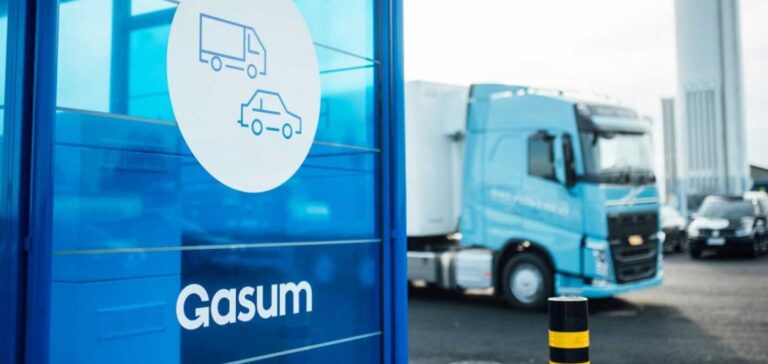Gasum, a Finnish energy company, plans to build five biogas plants in Sweden. This expansion aims to increase the availability of renewable gas in the Nordic countries. The new Hörby plant will use mainly agricultural residues, optimizing biogas production in the region.
Gasum Strategic Expansion
Gasum pursues its strategic plan in Sweden with the construction of five large-scale biogas plants. The Götene and Borlänge plants are already under construction, with commercial production scheduled to start at the end of 2024. These plants will convert agricultural residues into biogas, helping to diversify the sources of renewable energy available in the Nordic countries. The Hörby plant, located in the agricultural region of Skåne, will benefit from the experience acquired in the Götene and Borlänge projects. The Hörby site was chosen for its proximity to transport infrastructures and abundance of agricultural raw materials. The local authorities actively support this project, facilitating the necessary administrative procedures and permits.
Investments and Outlook
The Hörby plant is expected to receive up to 500,000 tonnes of raw materials per year, mainly agricultural residues. Gasum has not yet made the final investment decision, but the planning process is progressing apace as the necessary permits are obtained. The Hörby project has also received funding from the Swedish Environmental Protection Agency’s Klimatklivet investment program. Gasum expects the Hörby plant to produce 133 GWh of biomethane per year from the end of 2026, if completed on schedule. This production is in line with Gasum’s strategic goal of introducing 7 TWh of renewable gas per year to the Nordic market by 2027.
Economic and industrial impact
Gasum’s expansion in Sweden represents a significant investment in the biogas sector. These new facilities should not only increase renewable gas production capacity, but also create economic opportunities in the regions where they are located. The Götene, Borlänge and Hörby projects are an important part of Gasum’s strategy to strengthen its presence in the Nordic market. Gasum expects these projects to contribute to a reduction in energy costs for its customers, while increasing the resilience of energy supply in the region. The company continues to work closely with local authorities to ensure that projects progress on time and on budget. Gasum aims to quadruple its current production of renewable gas, with a target of 7 TWh per year by 2027, thus contributing to the diversification of energy sources in the Nordic countries.






















